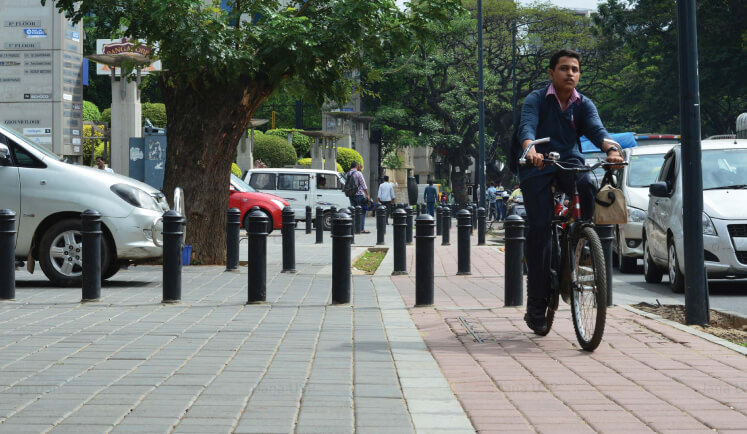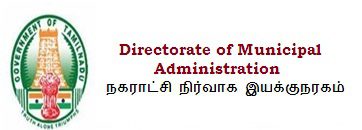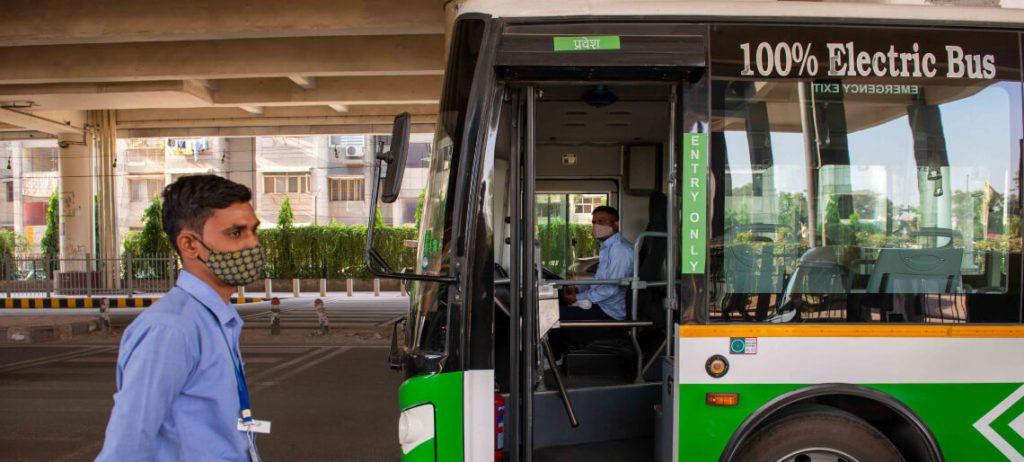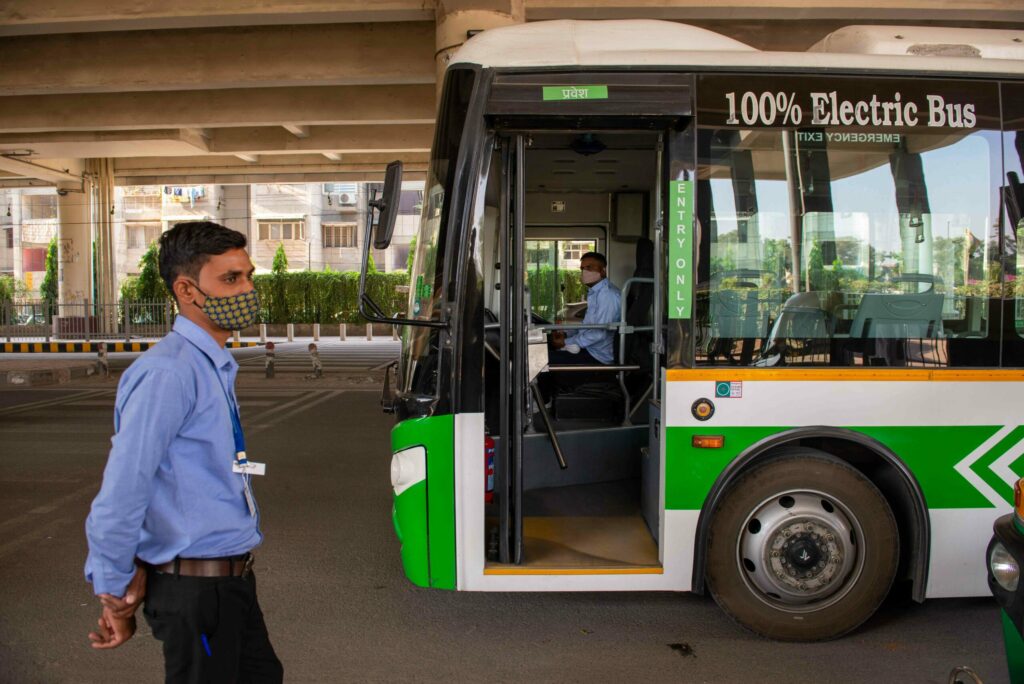Towards municipal finance that is citizen-focused
A city’s financial health determines its ability to offer quality infrastructure and services to its citizens.
Cities need to prioritise and allocate their limited funding. They must also do so effectively and transparently. Financial sustainability and accountability, therefore, are the two pillars of municipal finance that we work on.
A holistic approach to fixing municipal finance
We partner with city, state, and central governments, as well as various commissions and constitutional bodies, to make systems more accountable and cities more sustainable.
We do this through a three-track approach:
Policy Advocacy
Promoting reform at the national level.
Implementation Support
Creating proofs-of-concept of reforms for state and central governments.
Dissemination of Playbooks
Offering city and state governments blueprints to standardise and scale systems.

Streamlining the allocation of funds to cities
Engagement with Finance Commissions to improve devolutions
Janaagraha’s recommendations to the Fifteenth Finance Commission focussed on increasing the quantum of funds granted to cities, tracking grant utilisation through an online portal, creating Municipal Shared Services, improving accounting standards, and concentrating on metropolitan agglomerations. Several of our reform recommendations were accepted and positively impacted grants to cities.
Technology to improve fund management
Janaagraha has developed an online grant management system to digitise and manage the transfer of grants from the central government to cities. The system will provide a unified dashboard to check the eligibility and compliance of cities, track the disbursal of funds, monitor fund utilisation, and record outputs and outcomes achieved.
Advancing transparency, financial performance and accountability
CityFinance.in
Launched by the Ministry of Housing and Urban Affairs on 25 June 2020, cityfinance.in is a portal where cities can upload their financial statements. It serves as a national framework of standardised, timely, and credible financial information on cities.
Odisha Municipal Accounting Manual 2.0 (OMAM 2.0)
OMAM 2.0 is an endeavour to improve accounting, reporting, transparency, and accountability in state finance. Developed for Odisha by Janaagraha, OMAM 2.0 enables tracking and optimises service line costs at each level. We also drafted the rules and processes that will ease the implementation of the new manual.
Building financially sustainable cities through policy reform
Janaagraha partners with union, state, and city governments to augment city revenues through reforms. We are exploring user charges for water, solid waste management, and sanitation. We also facilitate database integration of property records, formulate property tax valuation models, strengthen digital tax collections, and design shared service models. Additionally, we design dispute resolution systems for property tax and innovate on increasing collections through competitions.
We worked with the Ministry of Housing and Urban Affairs to reform property tax through the development of the Property Tax Reform Toolkit, a comprehensive study of property tax in India that offers a reform roadmap for the future. The toolkit adopts a ‘whole of systems’ approach, recommending reform for all stages of the property tax lifecycle – from enumeration, valuation, and assessment to billing, collections, and reporting. It also includes best practices in each stage from cities across the country.
Streamlining the allocation of funds to cities
Engagement with Finance Commissions to improve devolutions
Janaagraha’s recommendations to the Fifteenth Finance Commission focussed on increasing the quantum of funds granted to cities, tracking grant utilisation through an online portal, creating Municipal Shared Services, improving accounting standards, and concentrating on metropolitan agglomerations. Several of our reform recommendations were accepted and positively impacted grants to cities.
Technology to improve fund management
Janaagraha has developed an online grant management system to digitise and manage the transfer of grants from the central government to cities. The system will provide a unified dashboard to check the eligibility and compliance of cities, track the disbursal of funds, monitor fund utilisation, and record outputs and outcomes achieved.
Advancing transparency, financial performance and accountability
CityFinance.in
Launched by the Ministry of Housing and Urban Affairs on 25 June 2020, cityfinance.in is a portal where cities can upload their financial statements. It serves as a national framework of standardised, timely, and credible financial information on cities.
Odisha Municipal Accounting Manual 2.0 (OMAM 2.0)
OMAM 2.0 is an endeavour to improve accounting, reporting, transparency, and accountability in state finance. Developed for Odisha by Janaagraha, OMAM 2.0 enables tracking and optimises service line costs at each level. We also drafted the rules and processes that will ease the implementation of the new manual.
Building financially sustainable cities through policy reform
Janaagraha partners with union, state, and city governments to augment city revenues through reforms. We are exploring user charges for water, solid waste management, and sanitation. We also facilitate database integration of property records, formulate property tax valuation models, strengthen digital tax collections, and design shared service models. Additionally, we design dispute resolution systems for property tax and innovate on increasing collections through competitions.
We worked with the Ministry of Housing and Urban Affairs to reform property tax through the development of the Property Tax Reform Toolkit, a comprehensive study of property tax in India that offers a reform roadmap for the future. The toolkit adopts a ‘whole of systems’ approach, recommending reform for all stages of the property tax lifecycle – from enumeration, valuation, and assessment to billing, collections, and reporting. It also includes best practices in each stage from cities across the country.
JANA IN NUMBERS

JANA IN NUMBERS

Grants of Rs. 1,20,000 crores got allocated to cities (working with Fifteenth Finance Commission)

8,400+ financial statements uploaded by cities on cityfinance.in (2015-16 to 2020-21)

Property tax collection increased by Rs. 37+ crores in Odisha

Collaborations




Collaborations










